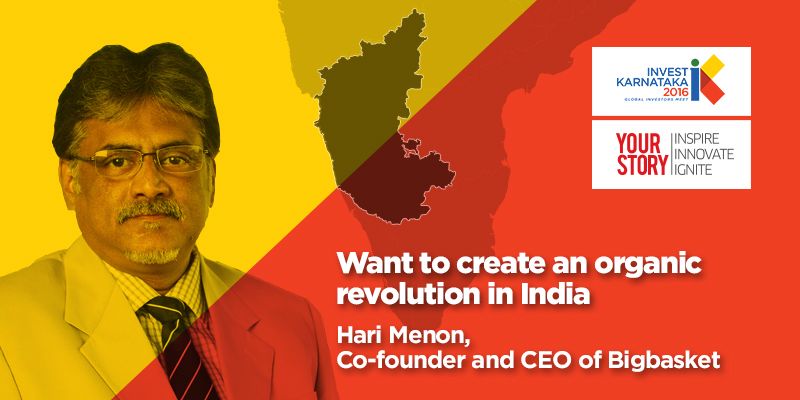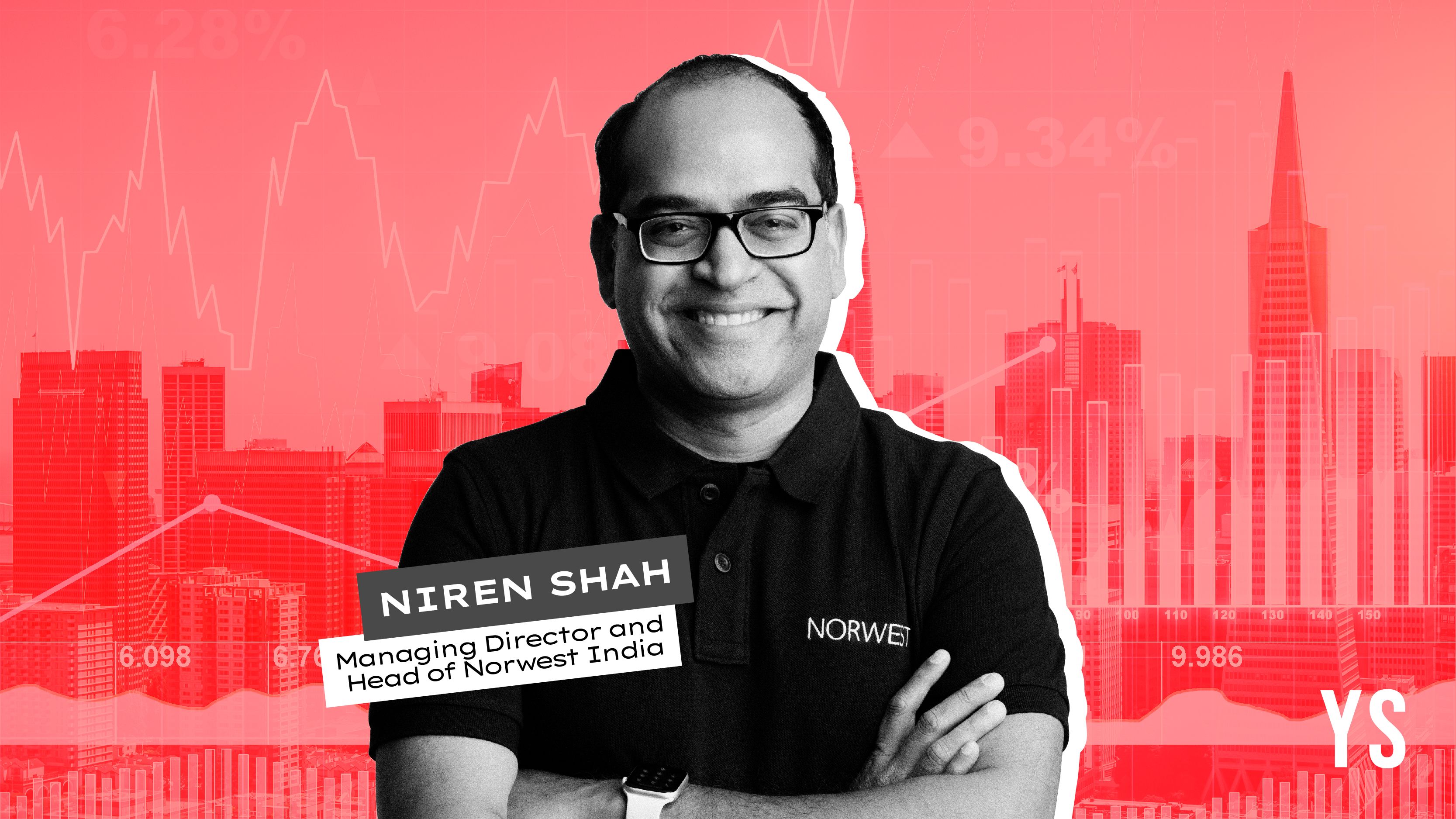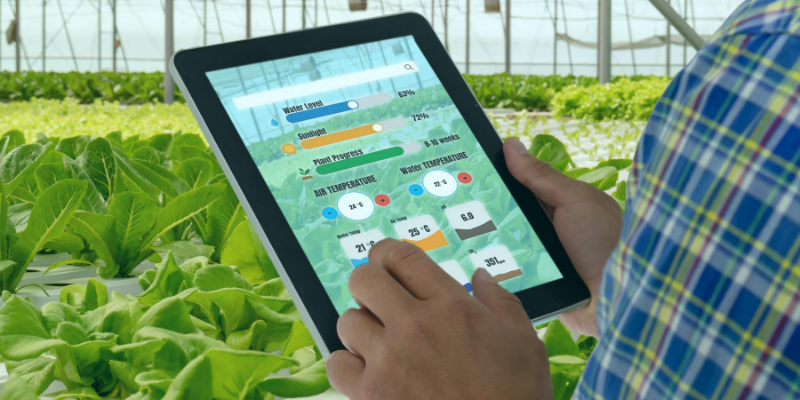Bengaluru-based online grocery firm Bigbasket is set to create an organic revolution in India
“Within retail sector, I represent a new-age E-commerce space that is food and grocery, which is one of the most difficult businesses from an execution standpoint,” said Hari Menon, CEO and Co-founder of Bigbasket, at Invest Karnataka 2016.
Founded in December 2011, Bigbasket is one of the largest online food and grocery companies with operation in 18 cities across India. By 2016, it is planning to expand its operations to another eight cities. The Bengaluru-based online grocery startup deals with over 15,000 products comprising groceries, fruits and vegetables, dairy products, personal products, kid products, and wide range of household products.

The number of Internet users in India is expected to reach half a billion by 2020, and 1,044 billion households are expected to purchase food and grocery online. Currently, 144 million households buy more than Rs 5,000 worth of food and groceries per month. The overall online business is expected to reach $20 billion by 2020.
He said,
The size of the retail business in India is close to about 500 billion dollars. Out of which 70 per cent is food and grocery, that is, close to 360 billion. It is expected to grow about 500 billion by 2020. The online grocery space today is just scratching the surface which is close 150 million and is expected to reach 10 billion.”
Speaking about the contribution of online grocery in the entire retail industry, Hari stated that the online grocery market in India contributes less than one per cent, which is expected to grow to about two to three per cent by 2018.
Bigbasket expects to achieve breakeven in the next two years and increase revenue to $2 billion from the current Rs 1,000 crore (about USD 150 million) on the back of expansion of network.
Farm to fork
According to Hari, 20 per cent of the value of Bigbasket comes from fruits and vegetables and this is about three times higher than what a physical chain does. A physical chain typically contributes about six to seven per cent. He added “For us, fruits and vegetables are the largest margin drivers.”
He said,
The online farm to fork gives us the best experience because we source either from the mandis of the farmers which essentially come to our warehouse and get processed and goes directly to the customers. Fruits and vegetables play a very key role for us.”
Bigbasket has raised $50 million from existing investors led by Bessemer Venture Partners, which it has utilised in expansion into new markets and introduce new services. Earlier, it has raised Rs 200 crore led by Helion Ventures and Zodius.
Invest in Karnataka
Bigbasket source 40 per cent of the fruits and vegetables from Karnataka and 30 per cent of them is actually sourced from farmers. In a bid to go deeper into the supply chain, the company is setting up collection centres in the different farming places of Karnataka.
We have also tied up with some of the agro businesses who deal closely with farmers. We make sure that we get the best produce and keep on supporting farmers. Currently, we have collection centres in Chikkaballapur, Mallur, Nelamangala, Gokak, and Mysore. We have enrolled 336 farmers and are working with 1048 acres of land, which produce 400 tonnes of fruits and vegetables,” said Hari.
Can Bigbasket create an organic revolution in the country?
In India, the demand of organic products is very high but there is a huge demand-supply gap. Hari mentioned that Bigbasket is getting limited supplies from the partners they are working with. Therefore, Bigbasket is planning to set up 70–80 collection centres only for organic fruits and vegetables. Currently, farmers are facing the problem of yielding which has led to low production of organic farming.
“We are very keen to submit proposals to the government to set up testing labs especially in the organic space. What a customer looks for in organic is certification. Currently certification processes is a huge struggle and we do not want to go to international agencies. We are currently working with PGS (Participatory Guarantee System). We are expecting an extended shelf life through cold chain and standardisation of organic product through certification process. We believe organic products have a long way to go and we would to like to invest in that,” said Hari.











